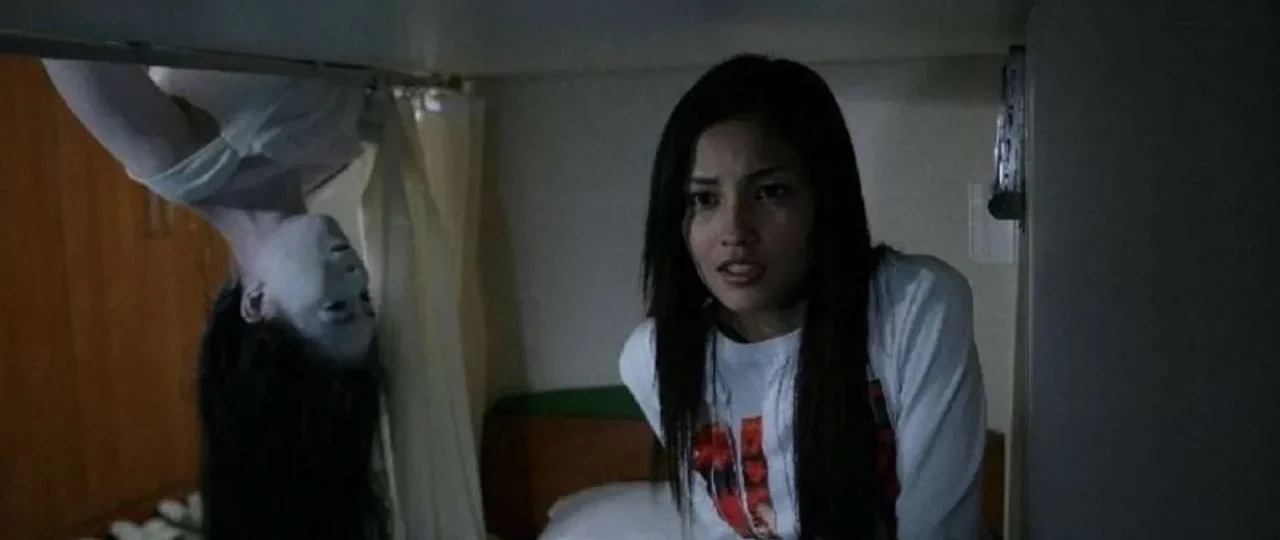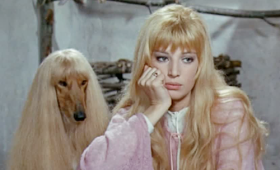memme.info – One Missed Call (2003), directed by Takashi Miike, is a Japanese horror film that explores the terrifying intersection of technology and the supernatural. Known for its chilling atmosphere and unsettling narrative, the film combines elements of traditional ghost stories with modern anxieties surrounding communication and technology. With its eerie premise, disturbing imagery, and psychological depth, One Missed Call has become a significant entry in the J-horror genre, influencing countless subsequent films.
The film’s plot revolves around the concept of a phone call from the future—a call that signals the recipient’s death. This haunting idea taps into deep-seated fears of fate, control, and mortality, and the unsettling nature of the film is enhanced by its exploration of technology as a conduit for supernatural forces. One Missed Call takes a familiar modern device—the cell phone—and transforms it into an instrument of death, showing how the things that are supposed to connect us can sometimes bring us closer to our own demise.
Plot Overview: A Deathly Call From the Future
The film begins with a disturbing incident involving a young woman, Yumi (played by Kou Shibasaki), who is startled when she receives a phone call from her deceased friend. The call features a voicemail message that is an eerie recording of her friend’s last moments, and it is followed by a chilling revelation: Yumi learns that the phone call is a foretelling of her own death. The voicemail includes the time and date of her death, as well as a message that hints at the manner in which she will die.
As the story unfolds, more and more people receive similar calls, each from someone they know who has died. The calls are marked by a chilling sense of inevitability, as the individuals who receive them must confront their own deaths, knowing exactly when and how they will die. The phenomenon grows more pervasive and terrifying, with the call coming from people who have already passed, and the recipients of these messages increasingly find themselves in a race against time to uncover the source of the curse before it’s too late.
Yumi, along with a group of friends and investigators, delves deeper into the mystery surrounding the calls. They begin to unravel a supernatural connection to a tragic event in the past, one that has caused the vengeful spirits to use technology to seek retribution. As they get closer to uncovering the truth, the group faces mounting horror as each of them starts to receive their own missed calls, leading to a shocking and eerie conclusion.
Themes: Technology, Fate, and the Supernatural
At its core, One Missed Call is about the intersection of the digital world and the supernatural. The film takes something as everyday as a cell phone and twists it into an instrument of death, exploring the growing fear of technology’s potential to connect us to forces beyond our understanding. While cell phones are typically a source of communication, in One Missed Call, they become a tool for the supernatural, linking the living to the dead in an unnervingly personal way. The film taps into the discomfort that many feel about the growing ubiquity of technology, as it seems to be encroaching more and more into our lives, leaving us open to new, unforeseen dangers.
Fate is another central theme in One Missed Call. The characters in the film are trapped by the knowledge of their own demise, as they cannot escape the inevitable nature of the curse. The concept of knowing one’s own death in advance is an inherently terrifying idea, as it takes away the ability to control or fight against fate. This inevitability fuels much of the tension in the film, as characters are forced to confront their own mortality in a way that feels both surreal and all too real.
The supernatural elements are also crucial to the film’s narrative. The curse is not just a random occurrence; it is tied to a vengeful spirit, seeking to punish the living for some past wrongdoing. The spirits in One Missed Call are not malicious in the conventional sense—they are victims who have been wronged, and their calls are a form of retribution. This ties into the idea of karmic justice, where the supernatural acts as a mechanism to address unresolved issues from the past.
Cinematic Style: Building Suspense Through Atmosphere
One of the most effective elements of One Missed Call is its ability to build tension through atmosphere and suspense. Takashi Miike’s direction is masterful in creating a creeping sense of dread that permeates the film. The slow pacing and gradual unveiling of the mystery add to the tension, as viewers are drawn into the story through the characters’ experiences and the mounting fear of the unknown.
The film’s visual style complements its atmospheric approach, using dim lighting and muted colors to create a sense of foreboding. The phone calls themselves are accompanied by eerie sounds and unsettling images, adding to the supernatural tension. Miike also uses several unexpected visual and auditory cues to startle the audience, playing with the fear of the unknown and the fear of technology itself. The visual effects, such as distorted phone screens and ghostly images, are subtle yet effective in creating a sense of unease.
The film’s soundtrack, which features eerie, atmospheric music and sudden jarring sound effects, plays a crucial role in building suspense. The use of silence and space between the phone calls adds to the isolation and terror experienced by the characters, as they are haunted by the knowledge of their impending death.
The Curse and its Impact: Connecting the Past to the Present
A significant aspect of One Missed Call is its exploration of how the supernatural is tied to past trauma and unresolved events. The curse that plagues the characters is not a random occurrence; it has roots in a tragic event from the past, which continues to affect the present. This connection between past and present creates a sense of inevitability, as the characters are drawn into a cycle of death that they cannot escape.
The film suggests that these missed calls are a form of unresolved emotional distress, where the dead seek to communicate and warn the living. The curse seems to have no respect for time or the boundaries between life and death, indicating that the spirits’ need for closure is so powerful that it transcends the limitations of the natural world.
The idea that technology—something associated with modern life—can act as a bridge between the living and the dead emphasizes the growing unease surrounding technological advancement. The film reflects a fear of technology’s potential to invade personal spaces and even transcend death, questioning how connected we really are to the digital world and what dangers lie within.
Legacy and Influence: A Key Film in J-Horror
One Missed Call is a prominent film in the J-horror genre, which gained international acclaim in the early 2000s. It shares thematic similarities with other films from the genre, such as Ringu (1998) and Ju-on: The Grudge (2002), particularly in its exploration of curses, vengeful spirits, and the supernatural. The film’s incorporation of modern technology as a medium for the supernatural is a key element that distinguishes it from earlier works, making it a unique contribution to the genre.
While One Missed Call may not have reached the same level of international success as Ringu, it has developed a cult following and remains influential in shaping the evolution of horror films in Japan. The film’s impact can be seen in later films that similarly explore the intersections of technology and the supernatural, and it helped to pave the way for films that incorporated digital technology and modern anxieties into the horror genre.
The film’s exploration of the role of technology in modern horror also resonated with global audiences, making One Missed Call a key film in the J-horror wave of the early 2000s. It highlighted how contemporary fears—especially surrounding the rapid growth of communication technologies—could be harnessed to create terrifying and deeply unsettling narratives.
Conclusion: A Terrifying Reflection of Technology and Mortality
One Missed Call (2003) is a haunting and unsettling exploration of the relationship between technology, fate, and the supernatural. With its chilling premise, eerie atmosphere, and psychological horror, the film offers a unique take on the traditional ghost story, using the cell phone—a symbol of modern communication—as a tool for terror. Its ability to tap into deep fears of mortality and the unknown, while commenting on the role of technology in our lives, makes it a standout entry in the J-horror genre.
As a work of supernatural horror, One Missed Call remains a thought-provoking and unsettling experience, one that continues to influence the genre and horror films that explore the intersection of the digital world and the supernatural. With its ability to terrify while also offering social commentary on modern technology, One Missed Call endures as a chilling reminder of the terrifying possibilities that lie beyond the familiar.




